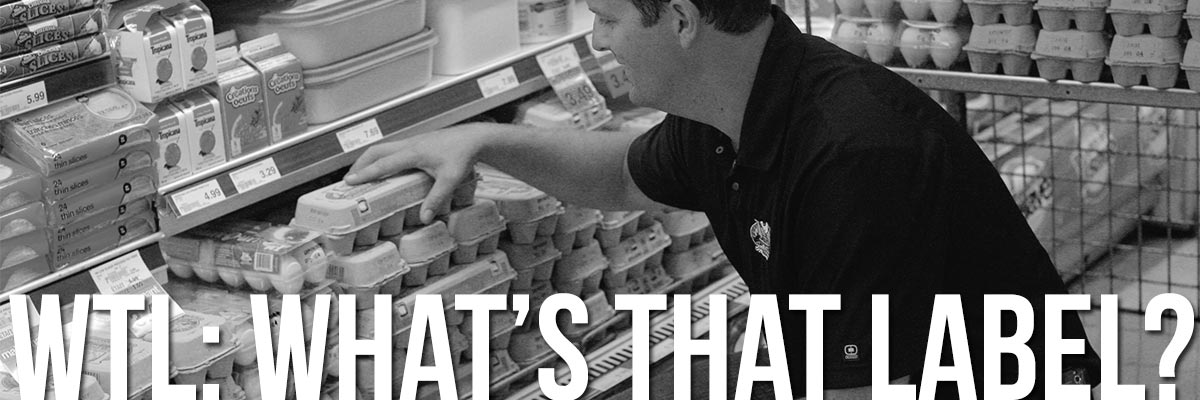
WTL: What's that label?
You know what’s cool about 2018? That we, as a society, have a choice in what we eat!
You want to be vegetarian? Cool! Paleo? Awesome! Keto? Well done! Organic? Good on ya! Whatever you put in your mouth, you’re making an educated decision on that.
Our food possibilities are endless! But navigating those food choices can be a little tricky especially when it comes to eggs. So we’re going to help you out with deciphering some of the labels you might see in the grocery store.
First though, we want to remind you that all eggs in Canada are a great source of protein along with 13 other essential vitamins including Vitamin A, B12, D, E and nutrients such as folate, niacin, lutein, zeaxanthin and choline. They are also gluten-free and trans fat-free and a great option for anyone looking to reduce carbohydrate intake.
So what exactly do the labels mean?
Enriched (or furnished) eggs: Hens are kept in small group housing units that are larger than the traditional housing style.
Free Run eggs: These hens are housed on the floor of barns, but do not have access to the outdoors.
Free Range eggs: Similar to Free Run, hens are housed in open barns, but with access to the outdoors when weather permits.
Organic eggs: Organic eggs are raised in free range housing systems, but with the added requirement that hens must be fed certified organic food.
Omega-3 eggs: These eggs come from hens that are fed ground flax seed, fish oil or other DHA sources, so that the eggs contain increased levels of Omega-3.
Vitamin-Enriched: Vitamin-enriched eggs have more Vitamin E, Vitamin B12 and folacin than regular eggs. This is done by feeding the hens a diet higher in these nutrients.
The age old brown eggs vs white eggs debate?
When it comes to choosing brown eggs or white eggs, while some people prefer one colour over the other, nutritionally speaking there is no difference between the eggs. Egg shell colour is determined by the hen that lays it. White eggs come from white-feathered hens, while brown eggs come from brown-feathered hens. Brown eggs tend to cost most because brown hens are larger than white hens and they will eat more feed.
So whatever eggs you choose to buy in the grocery store, feel comfortable in the fact that you are buying nutritious, high-quality, safe eggs.
Check out how eggs get from the farm to your local grocery store below!